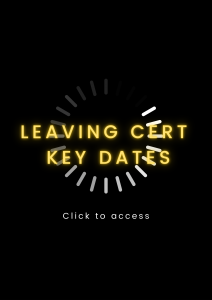Q: I’ve been reading your regular tips, and, while I agree with you assertion that an interviewee simply must ‘talk themselves up’, I wonder if there is a danger they could come across as arrogant. I believe it is important the interviewers like you as a person, and arrogance is rarely a likeable trait. Do you not feel there is a danger you could be giving people advice that could work against them? (DR, email).
A: It’s a very valid question. Just as ‘great wits to madness are near allied, and thin partitions do their bounds divide’, confidence and arrogance live just round the corner from each other. And there is a danger that a surplus of one (confidence) could lead to the other (arrogance.)
So, to be clear, I am not asking people to exhibit arrogance. There is a difference between being able to list your key skills and parroting on about them excessively. An interviewer likes to know you are aware of your strengths, but you should never give the impression that you are the only person who was ever blessed with those skills. A sense of perspective is important.
I don’t really fear that people will come across as arrogant upon reading the advice here, and here’s why: arrogant people don’t look for advice in the first place. In my one-on-one interview coaching sessions with clients, I rarely encounter arrogant people: they simply don’t present themselves looking for help. In fact, I cannot recall one arrogant person who came to me for coaching. So the very fact that you are open to taking advice would suggest that you have a certain modesty about you.
You show confidence when you say: “I believe I have excellent communication skills.”
You show arrogance when you say: “No-one ever, anywhere, has ever matched my communication skills.”
Confident people don’t make a song and dance of their skills – nor do they deny them. Bobby Charlton was once asked by a BBC interviewer about a forthcoming game. “Oh,” said Bobby, “I think we will win it alright.”
The interviewer, perhaps discommoded by such unwonted explicitness from a sports star, asked how he could be so sure. “Because,” replied Bobby, matter-of-factly, “we are the better team.”
To Bobby, it wasn’t arrogant to say he thought they’d win the game because they were the better team. Neither should it be arrogant of you to say you think you have what the employer is looking for: the alternative (i.e. that you don’t have what they’re looking for) is far more likely to raise worries for the employer.
Sli Nua Careers top tip
People often ask me if they feel they should bring along a presentation of some sort to the job interview. My answer is almost invariably ‘yes’. In this case, I invoke the time-honoured rule of ‘better looking at it, than looking for it.’
A presentation, portfolio or hand-out lingers long after you’ve left. It shows enthusiasm and professionalism. They may never look at it, but they are likely to be impressed that you took the time.
In the current environment, you take an edge wherever you find it: that presentation might just be the final point to tip the verdict in your favour. If I hadn’t sworn many moons ago that I would never, ever, quote or reference Al Pacino’s Any Given Sunday ‘inch by inch’ speech, I’d quote it here. I think you get my drift. Little things all add up, and a presentation might even be more than a little thing in the grand scheme.
Sli Nua Careers offer CV writing, interview training, mock interview and career direction services at their offices in Galway, Dublin and Ballinrobe, Co. Mayo. You can also obtain their free eBook providing Job Searching Tips by emailing getthatjob@slinuacarers.com with Job Searching eBook in the subject line. More: www.slinuacareers.com





